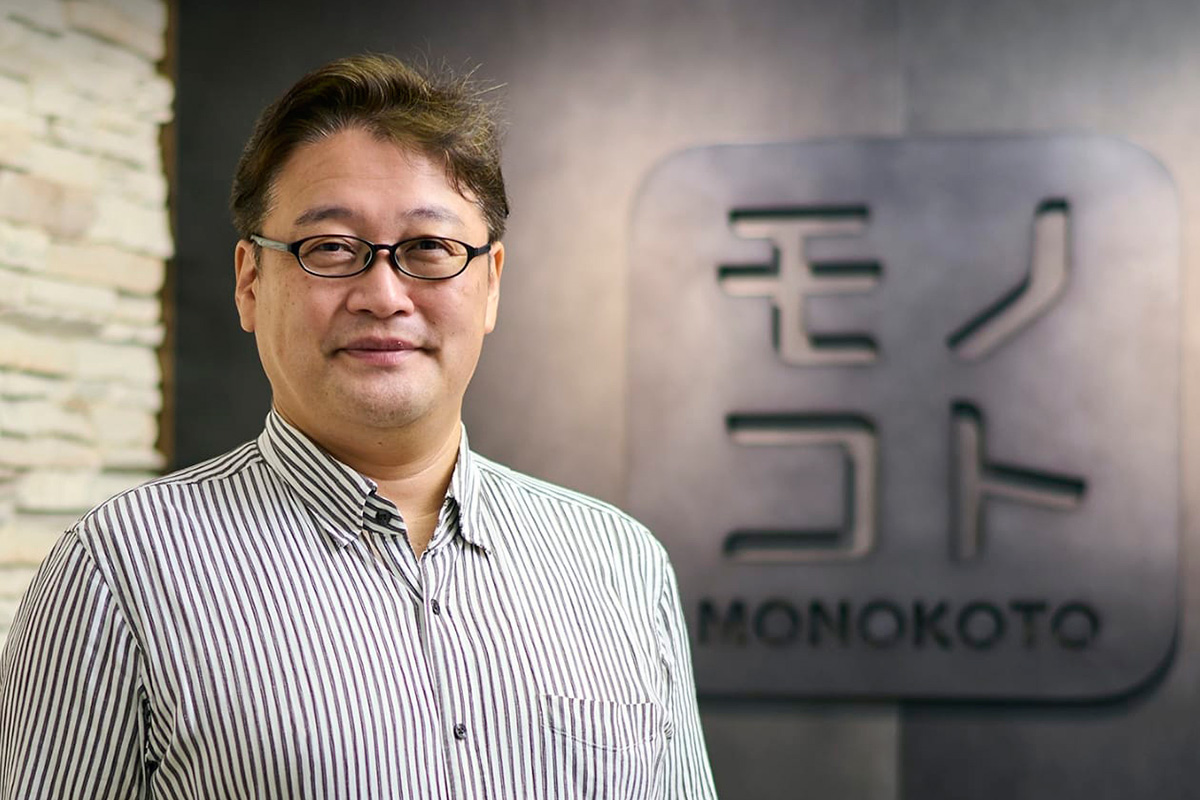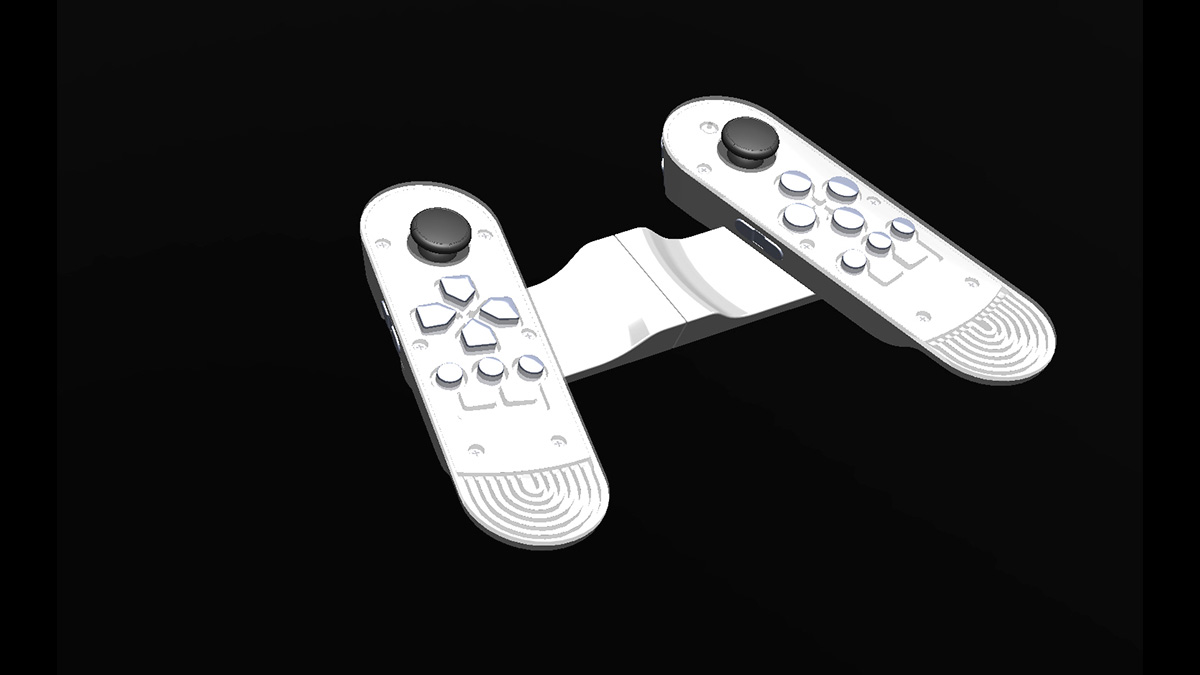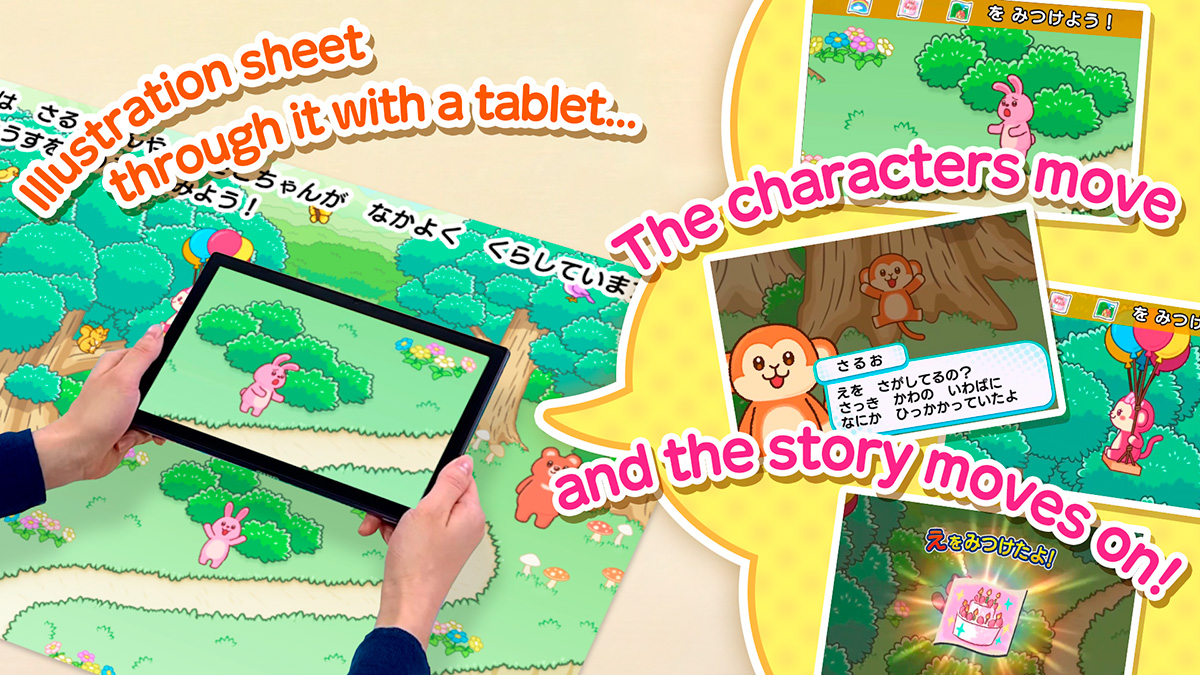In this in-depth interview, Monokoto's President discusses the historical significance, changing dynamics, and future strategies of the Japanese gaming and entertainment industry. From the industry's origins in user-centric design to the challenges posed by global competition and technology, explore the insights and vision of a seasoned leader in the field. Discover how Monokoto's unique approach to "monozukuri" and international expansion may shape the industry's trajectory in the coming years, and gain valuable perspectives on the role of technology, VR, and global collaboration in the evolving landscape of entertainment.

Japan has been a manufacturing powerhouse for the past 25 to 30 years, and this manufacturing has also been used to create the entertainment culture, a field in which Japan has established its leadership. Firms such as Sega and Nintendo have revived the gaming industry in the Western markets after the crash in the 1980s. However, in recent times, many American firms have surpassed Nippon companies. For example, the Unreal Engine is now the preferred game engine for game development, and the Xbox Series X has the label as the world's most powerful next-generation console. Despite this, two of the three major gaming consoles on the market are Japanese: the PlayStation 5 and the Nintendo Switch. Furthermore, Japanese anime and manga are also growing in popularity in the West year on year. What is your take on the current state of the Japanese gaming and entertainment industry as a whole? What do you believe are Japan's unique strengths when it comes to this specific sector?
It's widely recognized that Japan was a pioneering force in the gaming industry during the 1980s and 1990s. Japan's success in this domain can be attributed to its user-centric approach and keen attention to intricate details, which embodies the Japanese concept of "omotenashi" or hospitality. In that era, American and European companies also produced impressive games with original and creative ideas. However, their games often had a rougher and bolder structure compared to the refined and sophisticated approach of Japanese game development, giving Japan a competitive edge.
There were two factors that initiated change in the industry after that period. First, game consoles evolved significantly, with more computing power and abundant memory resources. This evolution and development of high-tech gaming consoles paved the way for American and European companies to realize their creative and original ideas, which served as an advantage for American and European companies. The trend of increasing computing power enabling US companies to materialize their game concepts is likely to continue.
The second significant change we need to focus on is how games are developed. Presently, major US companies, armed with substantial capital and abundant human resources, can produce mega-hit games that are almost like Hollywood blockbusters. This marks a departure from the traditional Japanese game development culture. The shift in global game development practices has given American companies a competitive edge, but I think this trend is going to change.
Despite these changes, the entertainment industry remains inherently risky. Pouring considerable resources and money into product development does not guarantee the success one wants. I don't think large-scale productions common in the US would be able to assure companies of gaining profit. That is how I see the market today.
My career began at Nintendo, where I was involved in console hardware development. When I was with Nintendo, Mr. Hiroshi Yamauchi, who is a member of Nintendo's founding family, was acting President. I was really impressed that even 30 years ago, he had a very clear prediction about what’s happening today. He talked about the trend of companies investing more money into developing games, and the scale of production will continue to grow, which inevitably imposes more and more risks for the companies taking on projects.
Three decades ago, a small team of engineers could develop a game within a few months, which could be sold worldwide for a substantial profit, by a million or a few million copies of game titles. Today, however, a project may involve over a hundred engineers and take several years. Despite the significant changes in game development, the selling price of games has remained relatively stable at USD 30 to USD 70, which highlights increased investments and escalating financial risks involved in game development.
I'm not saying that I'm against large-scale production because I think it’s a part of the game industry. However, if everyone aims to take that direction, it would be very tricky. We need to explore an alternative direction for developing games.
In the last five years, game development has changed immensely, especially because of COVID-19. Your company name, Monokoto, bears two themes, monozukuri and kotozukuri, which have been integral to Japan’s success in making things. Can you give us a brief overview of Monokoto’s monozukuri?
My experience working at Nintendo, where I was involved in the development of Super Nintendo CD-ROM system and Super Nintendo BS adapter, left a lasting impact. One key figure during those early years was Mr. Gunpei Yokoi, who led a project related to electronic toys. Back then, entertainment devices were intended for children and needed to be cost-effective. This meant we couldn't rely on expensive, cutting-edge technologies. Mr. Yokoi's concept was to leverage techniques and devices that had become commonplace or commoditized. By creatively incorporating what people considered ordinary, we could offer a unique value and deliver a new experience to users. This philosophy, which I learned from Mr. Yokoi, continues to influence our approach at Monokoto and forms the core of our monozukuri.
In Japan, there's a saying about small red sharks known as "Kobanzame" that have a suction plate. It's said that these smaller sharks follow larger, more heroic, leader-type sharks. Their survival strategy involves trailing bigger sharks and sometimes benefiting from the remnants of the larger species' meals. Though not the strongest of sharks, they have their own method of survival.
I bring up this example of small red sharks to draw parallels with the toy industry. While the gaming industry is vast and powerful, the toy sector remains relatively smaller in scale. As a result, we're exploring ways to expand our business. Currently, we have a production base in China, and we're considering expansion into Vietnam. However, when you think about it, just focusing on toys isn't powerful enough to push us to go out and build a plant.
This is where the "red shark" philosophy comes into play. We monitor larger players in fields like smartphone components or the automotive sector, which are expanding in these kinds of areas and building new factories. By closely following these trends, we can identify opportunities to collaborate and avoid making significant investments on our own.
Expanding internationally can indeed be a challenging endeavor, which is why many companies opt to collaborate with local partners to gain a deeper understanding of specific regions. Is partnering with local firms an option for Monokoto as well to understand the Vietnamese market better?
Understanding the distinctive business practices and culture of a region is crucial when expanding internationally, but the most important thing is finding a trustworthy and reliable channel of information for our long-term success in international ventures, which may not necessarily be local partners.
Your originally developed Universal Game Controller is a wireless device compatible with both smartphones and game consoles, with swappable left and right units and adaptable angles. Why did you decide to create your own universal game controller? Given there are many third-party game accessories controllers like Logitech in the market, what makes your product stand out from the competition for more conventional products?
The concept of our universal console places a strong emphasis on compatibility with various platforms and users, ensuring that it's accessible to everyone. While different gaming companies produce consoles with unique features, there is a common design rule that unites them all: the left button controls movement direction, and the right button handles actions. This design is primarily tailored for right-handed individuals, and left-handed gamers have had to adapt to these conventions.
To address this, we've incorporated a crucial feature in our universal console: the ability to swap the right and left units. This simple adjustment greatly enhances control for left-handed gamers. Moreover, we recognize that people of varying ages exhibit differences in body proportions, such as arm length and shoulder size. To cater to these diverse needs, our console offers adaptable angles, providing users with greater freedom and comfort during gameplay.

Universal game controller
You also make in-house smartphone SR technology for figurines and animation, much of which can be utilized for education and marketing purposes. Can you tell us more about the SR Technology that you have developed?
We offer two types of SR products: printed media and physical objects. In our two-dimensional SR product, a device equipped with a camera and a screen, like that of a smartphone, is placed over a printed graphic to display an animated version of it. It's important to note that SR differs from AR (Augmented Reality) in a fundamental way. AR portrays computer-generated graphics on a real-world image, while SR operates differently. In SR, the software or program already contains the image. When you use a camera to capture an image, it recognizes and extracts the image or information stored within the system.
In the case of AR, the computer graphics character is overlaid on the real-time camera graphics. However, Monokoto's SR technology works by having the software program identify the printed character captured by the camera. It then downloads graphical data of the character from a server. The software leverages graphic recognition technology or invisible two-dimensional codes to pinpoint the relevant elements. It subsequently displays real-time graphics of the printed character on the screen.
Although it may appear as if the camera is rendering graphics in real-time, it's not the case. Instead, it renders downloaded, two-dimensional graphics. This allows us the flexibility to freely change and animate the graphics of the printed character. These changes are accomplished by modifying the graphics rather than overriding CG. This distinction makes our approach particularly appealing and effective for advertising and educational purposes.

SR technology
Virtual Reality (VR) is another big thing that's rising, and it's causing great debate on how it's used. For example, if we look at gaming as an example, advocates champion its ability to increase player immersion through high-fidelity environments, while also making them more physically active during the playing experience. On the other hand, detractors point to symptoms such as cybersickness, as well as ethical concerns like physical and social isolation or even desensitization to reality in some extreme cases. Do you believe that VR is the future, whether it be coming to entertainment or gaming, or do you believe alternatives like AR or SR will be more prominent instead?
Head-mounted devices for VR and MR (Virtual Reality and Mixed Reality) serve as significant apparatus and can be considered a fourth category of screens, alongside traditional TV screens, PC screens and handheld devices such as smartphones. Each of these devices maintains a specific distance between the viewer and the screen, with its own set of advantages and drawbacks.
Head-mounted displays, being in close proximity to the user's eyes, ears and skin, can create a more intense experience, potentially leading to increased user stress. However, this closeness also establishes a personal and exclusive space for the user, ensuring that the information is for their eyes and ears alone. It's likely that people will naturally gravitate toward the device that best suits their needs and preferences.
Each device has its unique applications. For instance, during a business trip, carrying a laptop might be inconvenient. If a head-mounted display offers comparable functionality, it could be a more convenient option, potentially even allowing for the use of a virtual keyboard.
Speaking from personal experience, as a gaming enthusiast who has spent countless hours playing Zelda, I acknowledge the appeal of using VR goggles to delve deep into the gaming world. However, I am mindful of the potential strain on my senses and would limit extended usage accordingly. Ultimately, each device has its own strengths and limitations, and their optimal use depends on the situation. Whenever there's a new technology available, people tend to adapt and learn how to maximize its benefits to suit their individual preferences and needs.
What is your favorite game?
I've always had a deep affection for Nintendo games, particularly classics like Zelda and Mario, which inspired me to work for the company.
Are you looking to find foreign companies to add to your list of clientele?
At present, we are actively considering expanding our business overseas for several reasons. One primary factor is Japan's declining population. The declining marriage rates and a reduction in the number of children born each year have been further exacerbated by the COVID-19 pandemic. As a result, the toy market excluding video games and trading cards in Japan is contracting at an alarming rate. This domestic market trend presents a pressing issue, and it's imperative for us to look beyond our borders.
Over the last few years, it has been a challenge for Japan to push and expand its toy industry overseas, and everyone is now trying to find a breakthrough. Our strategy involves developing products with a global appeal and keeping current partnerships with overseas companies to effectively target international markets. While the Japanese toy industry faces challenges due to a shrinking domestic population, there are exceptions like Power Rangers and Transformers that continue to thrive.
Looking at our technologies and techniques that have been nurtured through the toy industry, we may have a chance. Our proficiency in interactive computer graphics, which extends to various applications, is one of our strengths. Additionally, our intuitive user interfaces, designed to provide an enjoyable experience, can be applied to other sectors and industries.
We are not confined to collaborations solely within the toy industry; we are actively exploring opportunities across various fields and industries, although I can't delve into specifics at this moment. Rest assured that we are making progress in this direction.
Are there any other countries or regions you feel have the most potential for your firm?
In the short term, I am looking into Vietnam and Thailand as potential bases for our supply chain. Once we establish a strong foothold in these regions, India may become a viable option for us to consider. In this strategic planning, we need to apply the "small shark" strategy and assess how larger corporations the companies including automotive companies. We must determine if they can work in those regions. It's essential to closely monitor the evolving trends to determine the best course of action for our future strategy.
Suppose we come back in seven years on the 20th anniversary of this company. What are some goals that you as the president want to achieve for the company and for yourself?
My goals are deeply rooted in my personal philosophy about life and work. While I don't have a specific, time-bound goal, I take much pride in working in the entertainment industry because I believe that the ultimate pursuit for people is happiness throughout their lives. Entertainment plays a significant role in bringing joy to individuals.
Although it's very hard to say that entertainment is essential to people's daily lives, it undeniably plays a vital part. For instance, delicious food can bring happiness, but even not-so-good meals can nourish us. In contrast, poor-quality entertainment fails to bring happiness, presenting a substantial challenge for our industry. Consistently delivering high-quality entertainment is a demanding task, but I take immense pride in being a part of this field.
My aspiration is to actively contribute to society through my skills and ideas within the entertainment industry. While many in the West aim for grand accomplishments and substantial business success followed by retirement, my vision is to continue making contributions to society and the world by sharing my expertise and knowledge. This doesn't mean I will forever remain the president of Monokoto; there may come a time when I pass the torch to my colleagues.
My intention is to remain engaged in the entertainment business and actively play a role in society.
Interview conducted by Karune Walker & Jaime De Andrés Gracia
0 COMMENTS